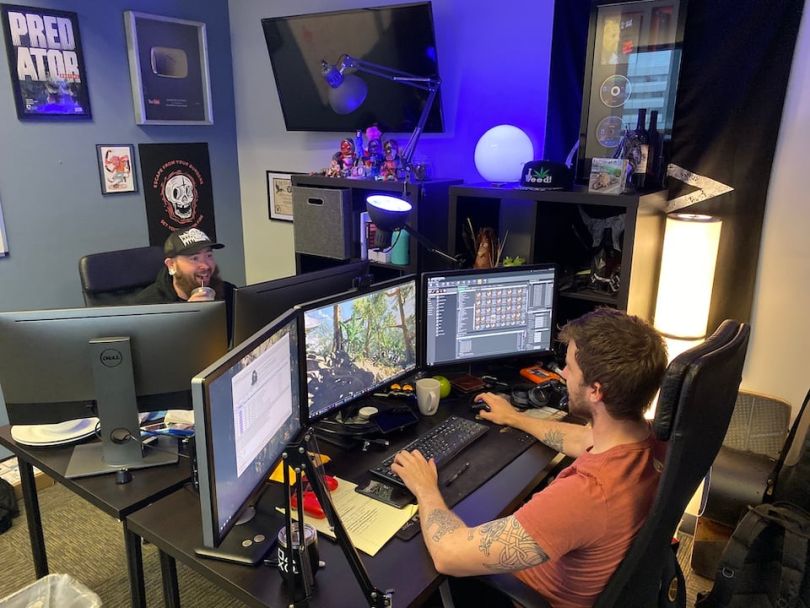Agreeing to work on a project you know literally nothing about beforehand involves taking a leap of faith. Anthony Fassero, president of video game development studio IllFonic, said convincing prospective hires to make this jump and join the company was a necessary hurdle to clear as they began work on their latest title, “Predator: Hunting Grounds.”
According to Fassero, when production on the still-unreleased game began, news of its existence needed to be kept a secret from the public, but the company had to bring in additional team members to staff a newly opened office and oversee the game’s development. This meant interviewees had to be kept in the dark about what they would eventually be working on.
How did IllFonic’s leaders persuade employees to help develop their mystery game? Fassero said they let their company culture — built on a sense of closeness and collaboration — speak volumes.

What's an example of a growing pain you experienced as the company scaled?
One of our biggest growing pains is recruiting new employees to work on the games that we often can’t talk about openly. When someone comes in for an interview and asks, “What game would I be working on?” we have to set their expectations without revealing too much.
A year ago, this was a huge problem for us since our game “Predator: Hunting Grounds” was not publicly announced, but we needed to fill our recently opened office in Tacoma, Washington.
We are building a team more so than building any one specific game.”
What was done to get new team members on board amid all the mystery surrounding the project they would be working on?
We changed the conversation by quickly vetting candidates and bringing them into the office to see the space and meet the people they would be working with. We are building a team more so than building any one specific game, so finding a match that fits how we work together is extremely important.
This has worked well and helped us get the team sizes we needed. We were able to grow the founding team of seven to 47 employees, which has expanded and improved upon our independent-game developer culture.
What was the most important lessons learned during that period of scale?
One important lesson we learned was to make sure we focused on keeping our company culture intact. It is really important that we maintain the feeling of “everyone knows everyone.”
So with that goal in mind, we decided to open multiple locations with smaller teams rather than one location with a large, unfamiliar feeling to it. This helps with company morale, and it really keeps our projects moving positively because everyone feels open to communicate ideas with each other. I think that can be easy to lose when companies grow large and too fast.





